Study Areas
The program covers four study areas:
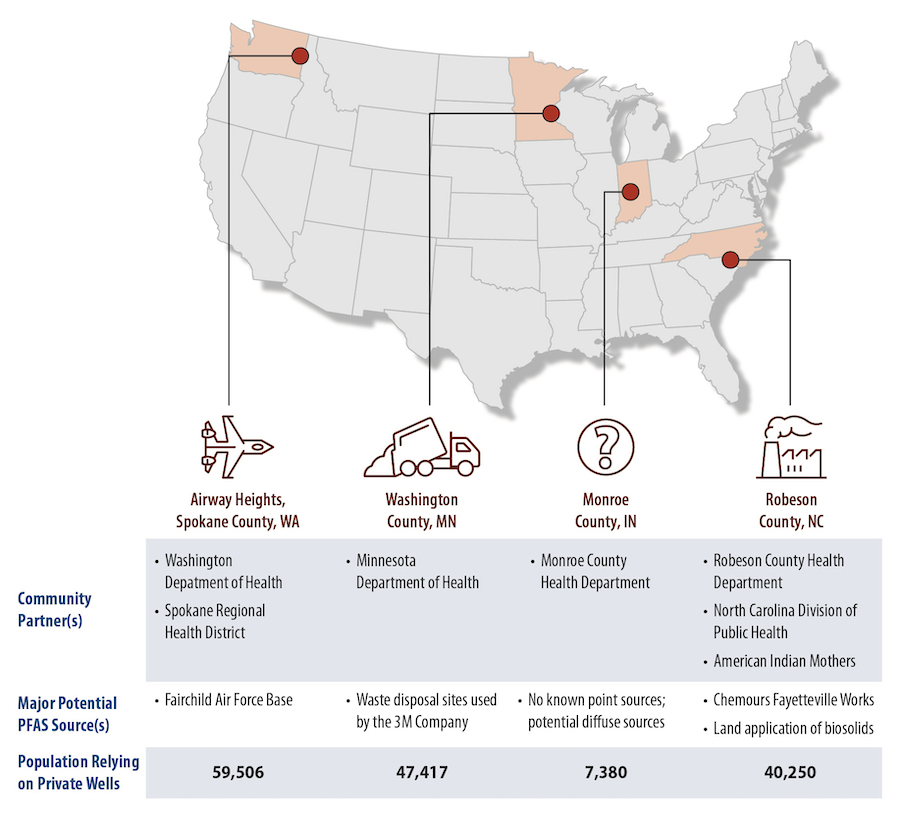
Select a location to learn more:
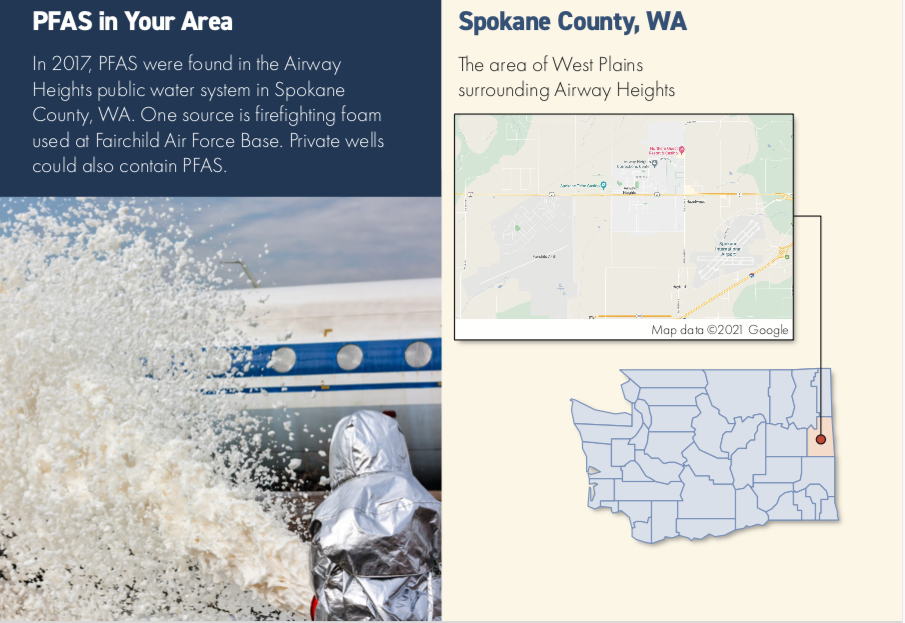
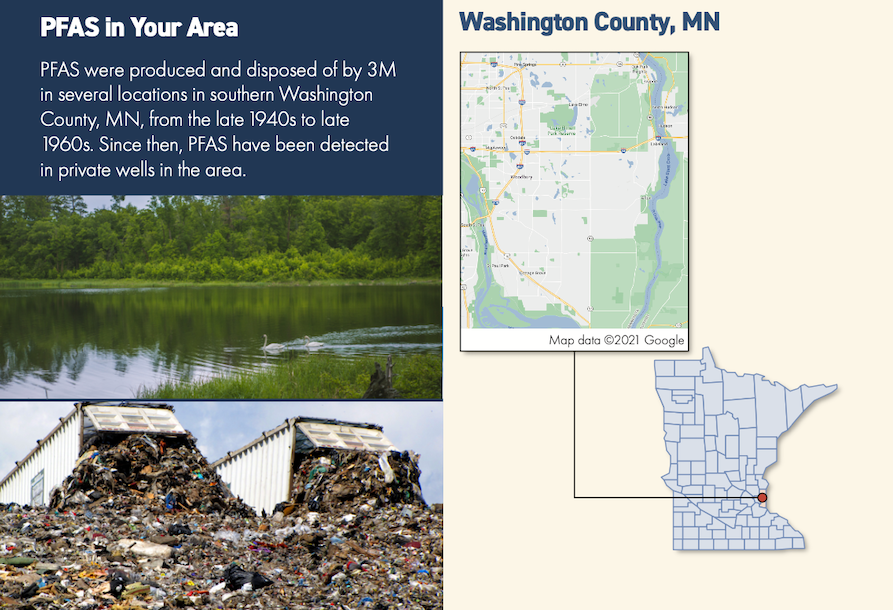
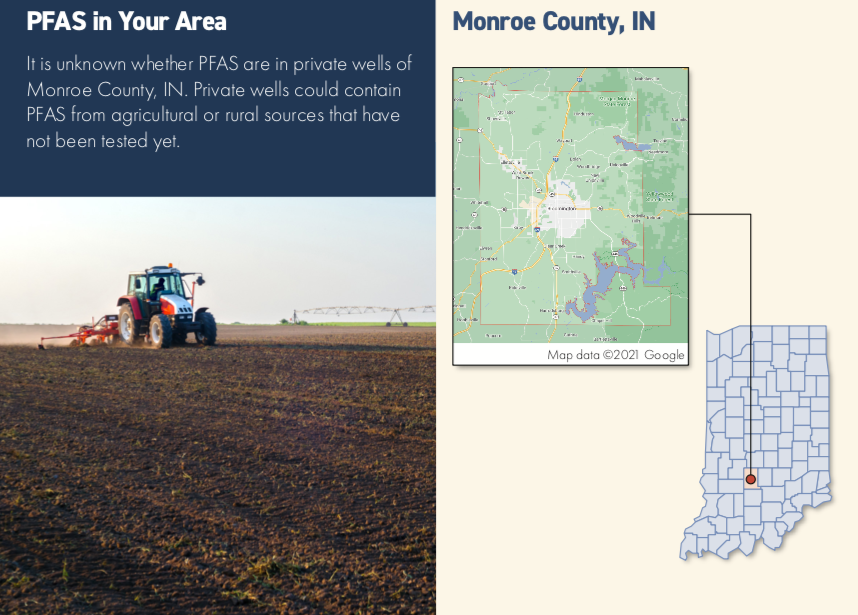
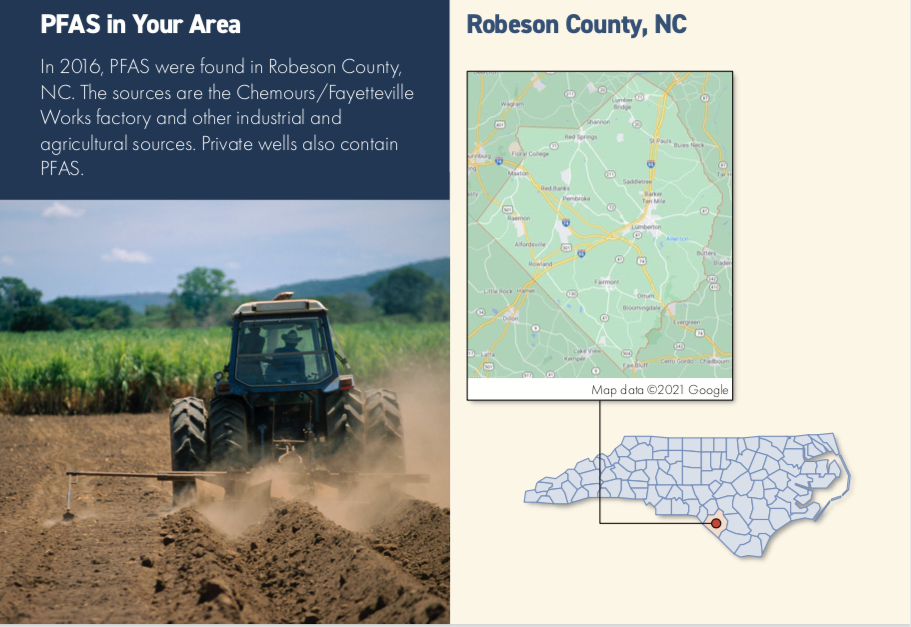
PFAS (Per- and polyfluoroalkyl substances) have been detected in groundwater nationwide. The Forever Chemicals in Well Water program is a grant-funded research study that tests household drinking water from private wells for PFAS. It is part of the Clean Water for US Kids™ citizen science program, which uses a citizen-science based training and testing strategy to identify chemicals in drinking water that can be harmful to health. The program also provides recommendations about what to do if these chemicals are found.
Water testing results from this program will contribute critical new information about the relative importance of various PFAS sources to private well contamination risk nationwide. Your participation in this program will help us to develop models to predict where well water is most likely to contain PFAS, helping us to prioritize support for others in the future. These models integrate machine-learned Bayesian networks with traditional fate-and-transport models for groundwater pollutants. Preliminary research in rural North Carolina (NC) suggests that these models can accurately predict PFAS sources and occurrence in private wells.
Exposure from private well water will also be compared to other sources of exposure to PFAS. Through this program, we will develop and share materials for training state and local decisionmakers on use of the new, integrated modeling platform and for communicating PFAS exposure risks in private well water.
The risks of exposure to PFAS in rural communities relying on private wells for their drinking water remain poorly understood. Health risks from PFAS exposure may include increased chance of certain cancers and problems like thyroid disease, high cholesterol, high blood pressure, and a reduced immune response to vaccines.
The proposed integrated modeling, PFAS testing, risk assessment, and risk communication approach is expected to substantially improve the accuracy of risk predictions and to facilitate informed risk management decisions.
The program covers four study areas:





The Forever Chemicals in Well Water program is funded by a grant from the US EPA and is a collaboration between Indiana University, RTI International, and local partners in each of the study counties.